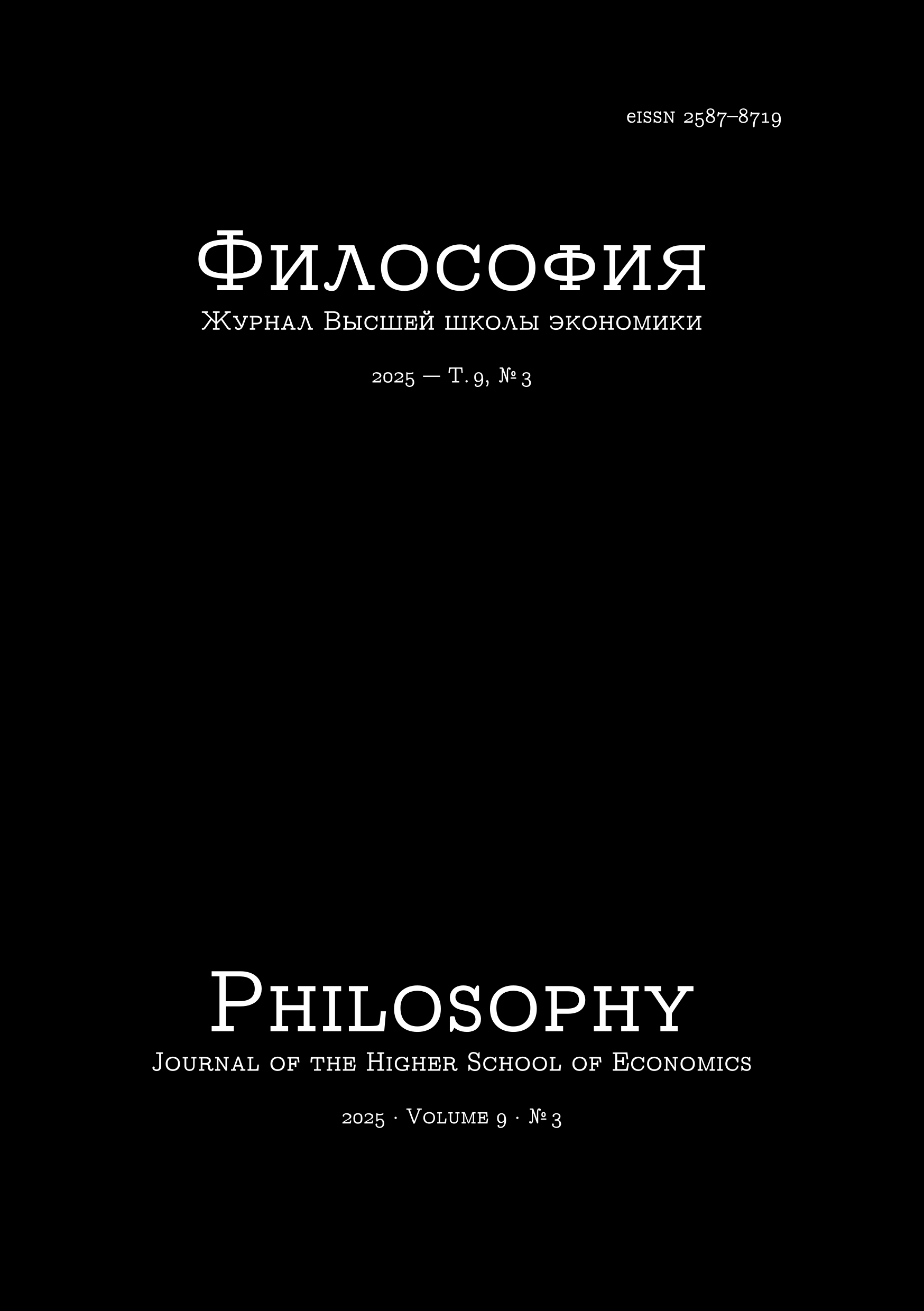Теория категорий в трактате Джорджа Дальгарно «Искусство знаков»
Аннотация
В статье рассматриваются логические и эпистемологические основания проекта универсального философского языка шотландского лингвиста Дж. Дальгарно, изложенного им в трактате «Искусство знаков» (1661). Автор показывает, что в построении категориального ряда, положенного в основу лексикона философского языка, Дальгарно гораздо более последователен, чем это предполагалось ранее исследователями его наследия (Слотер, Маат). Отвергая, как и Уилкинс, схоластическое учение о субстанциальных материальных формах, Дальгарно в духе умеренного номинализма трактует понятия субстанции и акциденции как абстрагированные от реальных экстраментальных вещей ментальные сущие. Автор показывает, что понимание формы вещей не как выраженной в определении «чтойности» вещи, постигаемой ранее ее акциденций, а как совокупности отношений, в которые одно сущее вступает с другими сущими и которые не могут быть полностью постигнуты человеческим умом, сближает логическую реформу Дальгарно с так называемой метафизикой отношений херборнских энциклопедистов и «Диссертацией о комбинаторном искусстве» (1666) Лейбница. При этом Дальгарно, со своей стороны, указывает на невозможность построения универсального языка на основании полного логического анализа понятий. Автор приходит к выводу, что решение Дальгарно положить в основу своего лексикона минимальное количество корневых слов и максимально соблюсти генетический метод словообразования было обусловлено преимущественным влиянием пансофии Я. Коменского, согласно которой метод изучения языков состоит в постижении интеллигибельного порядка мироздания. Таким образом, Дальгарно, учитывая деэссенциалистские тенденции философии Нового времени, рассматривает язык как когерентную, но подвижную систему знаков, структурирующую реальность на основе общих для всех людей ментальных актов и одновременно указывающую на границы человеческого познания.
Скачивания
Copyright (c) 2025 Philosophy Journal of the Higher School of Economics

Это произведение доступно по лицензии Creative Commons «Attribution-NonCommercial» («Атрибуция — Некоммерческое использование») 4.0 Всемирная.






